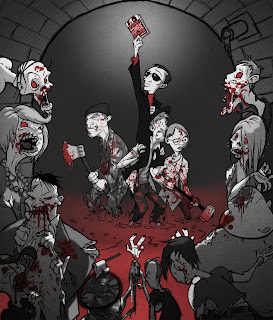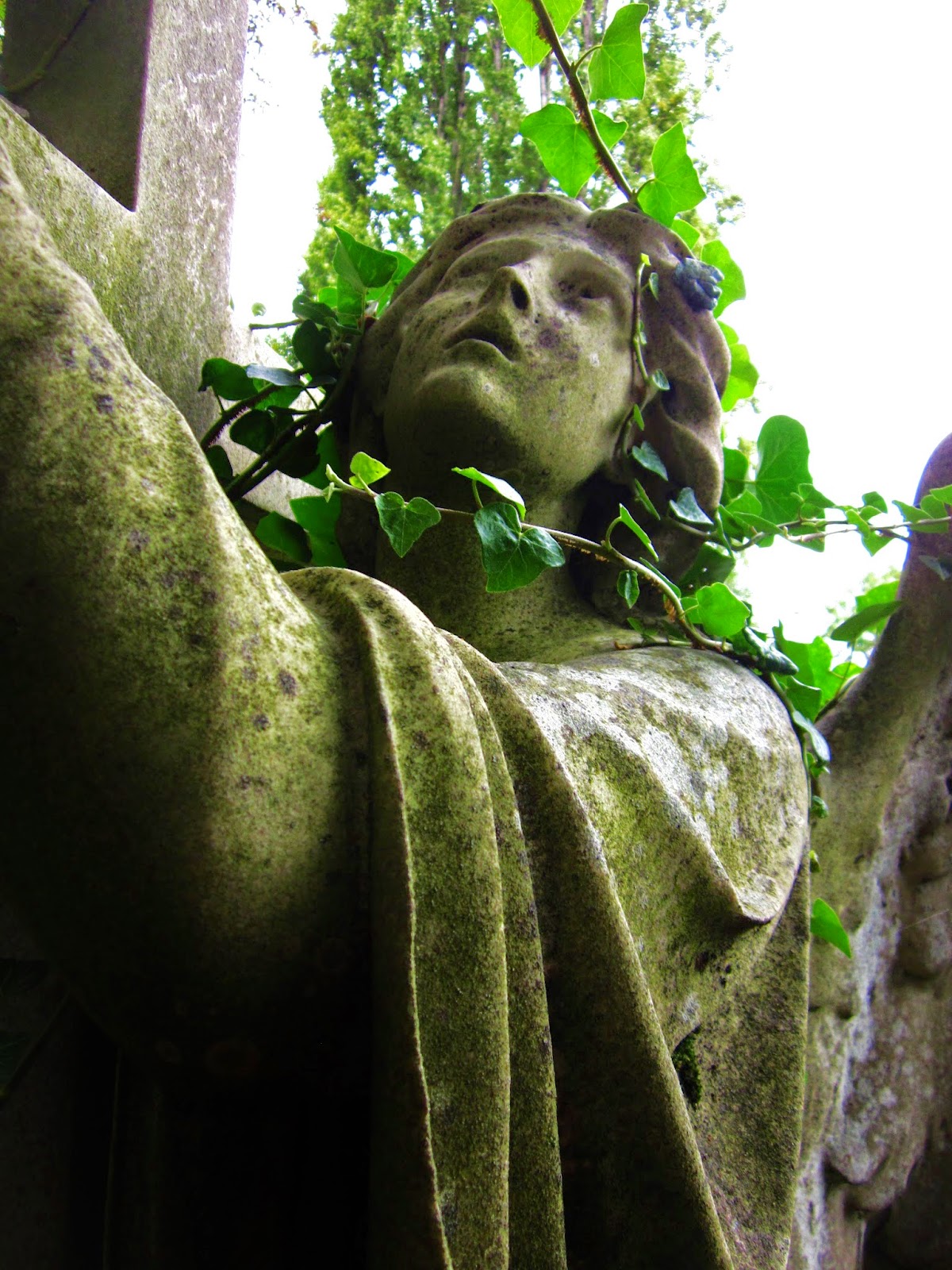How To Survive A Zombie Apocalypse
Most people will have their own contingency plan in place in case our world should one day be plunged into post-apocalyptic, zombie-ridden chaos. But just how well stocked up are you? Would you know how to deal with the inevitability of destroying a loved-one who returns from the dead? And should you hold up in your local shopping mall or head to the nearest off-coast island resort? These are just some of the points you’ve no doubt considered.
And you’re not alone. Last year the Edinburgh Festival Fringe, amongst others, played host to a series of ground-breaking seminars introduced by the leading expert in his field, and ‘zombology’ guru, Dr Dale Seslick. The seminars are your one stop shop to the world of zombie survival techniques. Aided by a dedicated team of specialists from the School of Survival, attendees will learn everything they need to know when coping with the undead as they rise from their graves and begin eating their way through the world’s population.
After the phenomenal success of the seminars in Edinburgh during last year’s Festival Fringe, Dr Dale and co. are heading out into the wider world, taking How To Survive A Zombie Apocalypse on a national tour in 2010. I caught up with the man behind the show – Ben Muir – to chat about the impending apocalypse, fending off the undead and the challenges of producing a low-budget, award winning stage show.
And you’re not alone. Last year the Edinburgh Festival Fringe, amongst others, played host to a series of ground-breaking seminars introduced by the leading expert in his field, and ‘zombology’ guru, Dr Dale Seslick. The seminars are your one stop shop to the world of zombie survival techniques. Aided by a dedicated team of specialists from the School of Survival, attendees will learn everything they need to know when coping with the undead as they rise from their graves and begin eating their way through the world’s population.
After the phenomenal success of the seminars in Edinburgh during last year’s Festival Fringe, Dr Dale and co. are heading out into the wider world, taking How To Survive A Zombie Apocalypse on a national tour in 2010. I caught up with the man behind the show – Ben Muir – to chat about the impending apocalypse, fending off the undead and the challenges of producing a low-budget, award winning stage show.
How did the idea for How to Survive a Zombie Apocalypse come about?
Every year at After Dark HQ we have a planning meeting about what projects we’re going to do and I wanted to do a show about zombies. And because I’m kind of in charge, I tend to get my own way and everyone agreed with me! Job done! It’s good to be the king!
Yes. Quite! Was it difficult developing the idea for stage? What made you decide to use the format of the show as a seminar?
When we were in the planning stages the one thing I made very clear was that I did not want to do a straight play about what life would be like surviving once the apocalypse has begun. For one, it has been done so many times before, and secondly – you need the money to spend on great make-up and special effects if you’re going to make a convincing show on stage. So, after deciding what we didn’t want to do we had to decide what we did. If you look around the internet you’ll find a massive community of people discussing what they would do when the zombie apocalypse begins and at the time we were putting the show together back in early 2009 no-one other than Max Brooks had really tapped into that market – so we came up with the idea of survival training shows – after that, with a penchant for interactive theatre and also larger than life characters in bizarre situations it wasn’t a big leap for us to come up with the idea of parodying the cheesy seminar style with a fake American zombology guru in charge of a ramshackle and frankly insane group of experts who never quite seem to get things right and once we’d got the style and the characters everything fell into place.
How did you go about writing the show?
We don’t write the shows, so much as make them up! For the original seminar we picked out the most important things people would need to know when the apocalypse began and from that the main actors got together and worked out set pieces for each training segment. Then, in between each segment we open up the room and allow the audience to throw questions at us regarding zombie training – anything they want to ask – and, as I say, we make it up from there. The new show is slightly different in that we’re running it as a simulation where we find out how many of the audience would actually survive should the apocalypse begin at the exact time that we are performing.
How difficult was it to adapt the piece for stage? What were the most challenging aspects?
The most challenging aspect of the show is trying to keep everyone happy. When you’re doing a show about zombies you are going to get people who come and watch you because they are big zombie fans and the show is about zombies – but right at the other end of the spectrum you’ve got audience members who’ve come to see you because you’re a successful comedy show and have no idea about the genre. That’s why I think the seminar style works well for us because as well as the in jokes and open debates that ensue in the questioning segments that appeal to the zombie geeks, like me, we’ve also got the four characters whose ineptitude always ends up with something going wrong to keep the comedy junkies happy.
You’ve published a book recently too – Dr Dale’s Zombie Dictionary! Can you tell me about it?
As part of the advertising campaign for when the show first came out in July 2009 I began a page on our website called ‘The Dictionary of Survival’ where I would put up a new letter every couple of days explaining certain things that you probably wouldn’t have considered to be useful during the apocalypse. On a whim I sent the link to the pages to some publishers and much to my surprise got two offers for publication. The book is out on the 1st Aug to coincide with the new seminar and then we’re touring the UK in the autumn to promote it. The book itself mirrors the style of the show in that it uses film references a lot and also a bizarre strain of logic.
Why do you think zombies have remained so popular over the years, particularly with regards to cinema?
I think it’s because no matter what spin you put on zombies – when they’re used in horror they are truly terrifying. A lot of other horror has been diluted – look at how vampires are being treated at the moment and to the same extent werewolves. They’re pretty much having the evil zapped out of them. Where as zombies are an almost unstoppable force that has no other motivation other than to kill. Plus – you can also be more inventive with your zombie killing. With vampires it’s stakes or sunlight. Werewolves – silver. With the undead, as long as you take out the brain you can pretty much use anything, from a katana to a piano.
There is a myriad of zombie-related entertainment on offer at the moment, from movies to computer games, zombie walks to comics and literary fiction. How does your show approach the subject matter in a fresh and different way?
When any of this zombie-related media sets out they have to lay down the rules of their particular zombie: How is the virus passed on? Where did it all start? We don’t have to do that. The seminars are set in the present day – which means the apocalypse hasn’t happened yet and that we are privy to the same information the audience is and we can reference it to our hearts content. We’ve actually been in touch with medical practitioners, crime scene analysts and university professors to get the proper information on related diseases, how a body rots, how viruses spread and all sorts of related information in order that we can answer questions regarding the undead convincingly – the amount of research we’ve put into getting the show right is immense!
Obviously you’re doing something right, as the show has been a big hit, particularly on the Edinburgh circuit. Why do you think audiences engage with it so well?
We never take ourselves seriously. We love what we do and I think that shows, especially when we get to the part of the show when we open up to audience questions. People really take the leap of faith and engage with the characters and the whole bizarre concept of the School of Survival – I think they love the fact that they can sit and have a serious discussion with other people about how best to defeat the undead!
What is it about zombies that appeals to you so much?
They used to scare the hell out of me. I think that’s why I wanted to do a show about them to help overcome my fear! But it’s not so much the zombies as it is the fans – we’ve met loads of people through the show who run fan sites, blogs, pod-casts and make films, and they are fantastic people. I’ve made loads of great friends through the zombie community, and I have the undead to thank for that.
What has been the most challenging aspect about the production?
The make-up! If I’d have known that I’d be playing the character of Dr Dale so much I would never have given him such a horrendous fake tan. Every show I have to pile it on and then it is a nightmare to get off afterwards and you get strange looks in the pub after the show when you’re bright orange.
And the most rewarding?
I’m doing a show about zombies to earn a living – I don’t think things could get any more rewarding than that!
How To Survive A Zombie Apocalypse will make its Irish debut at the 2nd Yellow Fever Independent Film Festival in Belfast, August 30th.






